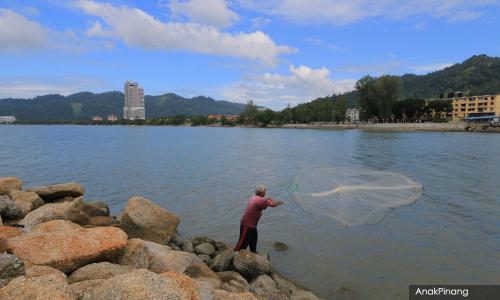Penang needs a new economic vision
LETTER | Penang, largely due to its NGOs, probably is the only state/area in South East Asia that has generated the most robust debates and dialogues on the sustainability of communities and environment. Yet we can see Penang's current and previous government stuck in an outdated economic vision of Penang, developing a large number of real estate properties with continual land reclamation to expand land supply and continual expansion of major road infrastructure.
This economic vision also continues to include relentless expansion of industries with foreign direct investments attracted by offering cheap labour.
While Penang had few alternative choices of economic strategies four decades ago, it makes no sense to keep continuing today an economic strategy for which nett benefits to communities and environment is not positive and when the state has other better alternatives to follow.
Politicians do not have to throw the baby out with the bath water. As Penang NGOs rightfully demand, they need to upgrade their policies to keep up with the needs of today. Instead of building roads to move cars, they instead need to shift to shaping an integrated transport infrastructure and service policy that moves people. Instead of constructing housing largely for foreign investors, they need to strike a balance with a sustainable delivery of affordable quality housing for present and future locals, preserving communities’ wellbeing, conserving heritage all while having a negligible impact on the environment.
There is also a shift that is needed to preserve heritage for tourist dollars to include other higher priorities such as conserving memories for the purposes of healing and wellbeing of communities that live much longer today than ever before.
Most importantly, instead of creating job numbers, the state government needs to be creating quality jobs per household and sustaining a minimum household income and employability through employment opportunities. Instead of aiming to bake the biggest economic pie, hoping for the benefits to trickle down and ignoring the fact that even the crumbs do not reach a significant proportion of the population, they need to start measuring benefits realised by each segment of the population and plan economic policies accordingly.
Penang, in fact Malaysia too, requires a productivity revolution where restaurant, construction, agriculture and manufacturing industries restructure jobs and production processes to create higher productivity jobs led by productivity pegged wages. Penang also needs to grow its economy through creative diversification guided closely by transparent policy processes and input from sectors that are more dynamic in innovation such as NGOs and applied research.
Instead of solely relying on construction and manufacturing industries, Penang needs to invest heavily in public, non-profit and the research sectors of education and health industries. The benefits will add to balanced economic growth plus one segment of those industries will lead to a positive spillover to the export of goods and services which will add to higher economic growth strategies.
A large segment of long-term stable jobs with stable incomes needs to be created in those industries. That is one key feature of developed economies that Penang, as well as Malaysia, is clueless about achieving in its march to become a developed economy.
Fundamentally, Penang needs to use this opportunity of a "New Malaysia" to shift to a "New Penang" that is more strategic, measured and successful in benefits realisation for its people, environment through its policies. Creative innovation needs to be the central driver in policy-making and implementation areas. This requires the Penang government to restructure its state civil service to be more lean and efficient and integrated with more innovative players in the economy such as NGOs, applied research sector and the private sector. Politicians are also at a very timely juncture to assess the performance of civil servants at senior and mid-levels and put in place the necessary teams for the next and final lap.
The writer heads Basmala Australia, an NGO focused on services and applied research.
The views expressed here are those of the author/contributor and do not necessarily represent the views of Malaysiakini.
RM12.50 / month
- Unlimited access to award-winning journalism
- Comment and share your opinions on all our articles
- Gift interesting stories to your friends
- Tax deductable
